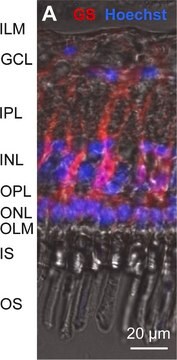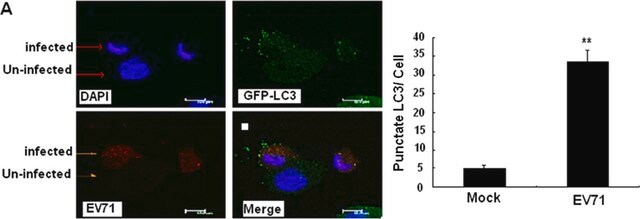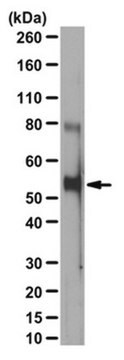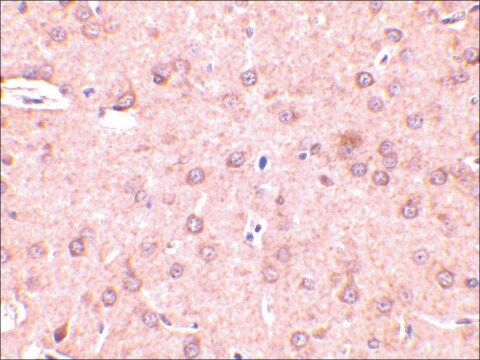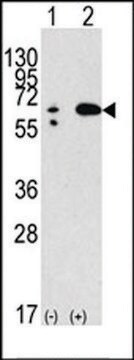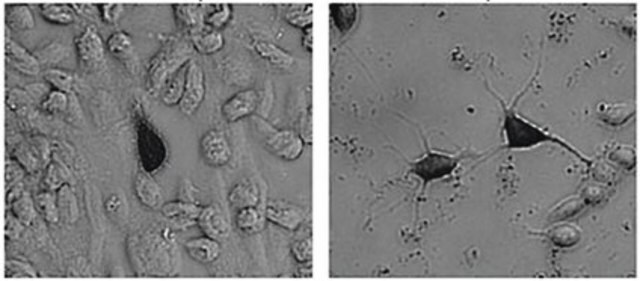MABC34
Anti-Beclin-1 Antibody, clone 9A1.1
clone 9A1.1, from mouse
Synonyme(s) :
Beclin-1, Coiled-coil myosin-like BCL2-interacting protein, Protein GT197
About This Item
Produits recommandés
Source biologique
mouse
Niveau de qualité
Forme d'anticorps
purified immunoglobulin
Type de produit anticorps
primary antibodies
Clone
9A1.1, monoclonal
Espèces réactives
human
Conditionnement
antibody small pack of 25 μg
Technique(s)
flow cytometry: suitable
immunohistochemistry: suitable (paraffin)
western blot: suitable
Isotype
IgG2aκ
Numéro d'accès NCBI
Numéro d'accès UniProt
Conditions d'expédition
ambient
Température de stockage
2-8°C
Modification post-traductionnelle de la cible
unmodified
Informations sur le gène
human ... BECN1(8678)
Description générale
Immunogène
Application
Flow Cytometry Analysis: 1 µg from a representative lot detected Beclin-1 in HeLa cells.
Apoptosis & Cancer
Apoptosis - Additional
Qualité
Western Blot Analysis: 0.5 µg/mL of this antibody detected Beclin-1 in 10 µg of Raji cell lysate.
Description de la cible
Liaison
Forme physique
Stockage et stabilité
Remarque sur l'analyse
Raji cell lysate
Autres remarques
Clause de non-responsabilité
Vous ne trouvez pas le bon produit ?
Essayez notre Outil de sélection de produits.
En option
Certificats d'analyse (COA)
Recherchez un Certificats d'analyse (COA) en saisissant le numéro de lot du produit. Les numéros de lot figurent sur l'étiquette du produit après les mots "Lot" ou "Batch".
Déjà en possession de ce produit ?
Retrouvez la documentation relative aux produits que vous avez récemment achetés dans la Bibliothèque de documents.
Articles
Autophagy is a highly regulated process that is involved in cell growth, development, and death. In autophagy cells destroy their own cytoplasmic components in a very systematic manner and recycle them.
Notre équipe de scientifiques dispose d'une expérience dans tous les secteurs de la recherche, notamment en sciences de la vie, science des matériaux, synthèse chimique, chromatographie, analyse et dans de nombreux autres domaines..
Contacter notre Service technique